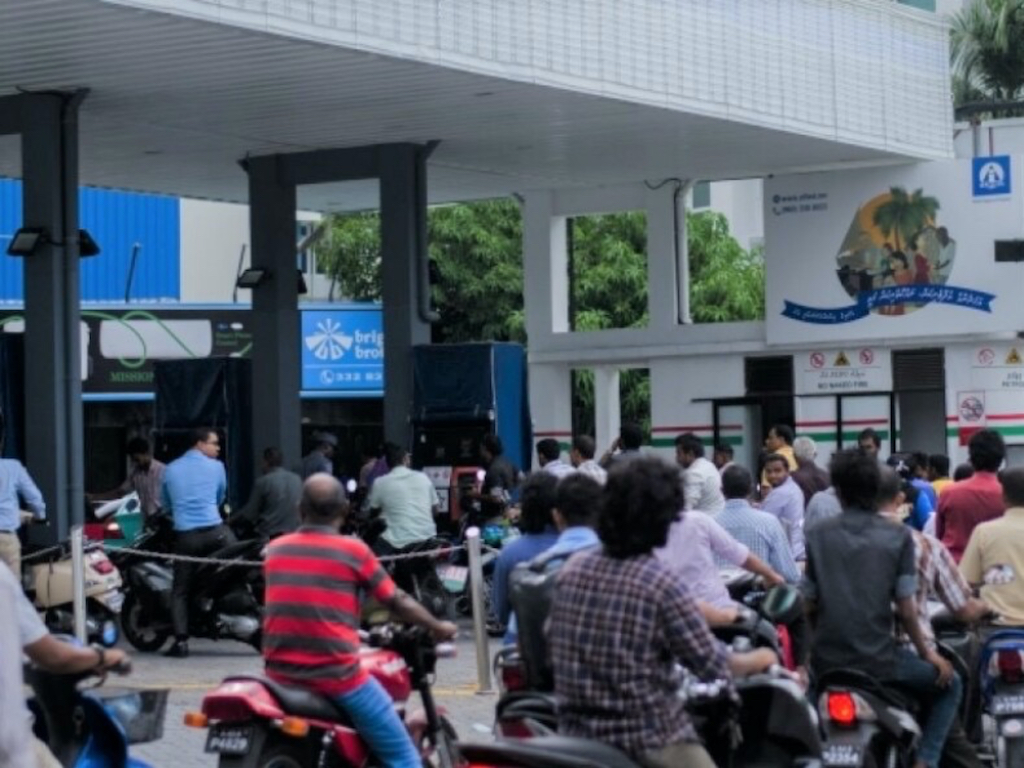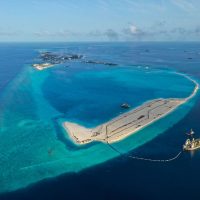Inflation in June hit 5.19% in annual terms and rose by 0.45% from May.
“The most significant price increase in this month were from fish (+3.44%), fuels and lubricants for personal transport equipment (+14.76%), passenger transport by air (3.28%), passenger transport by road (+10.68%), meat (+3.57%), milk, other dairy products and eggs (+1.04%),” according to an overview of the Consumer Price Index by the National Bureau of Statistics.

In his Independence Day address to the nation, the president announced plans to target fuel subsidies to the needy, calling it a “necessary burden” to ensure steady and sustainable economic growth.
Subsiding fuel has cost MVR910 million (US$59 million) so far this year, up from a total of MVR546 million in 2021. If global oil prices remain elevated with a protracted war in Ukraine, the government will have to spend MVR1.95 billion on fuel subsidies, well above the MVR341.5 million budgeted for 2022, he explained.
“The price of oil in the Maldives did not change anywhere close to the extent that it rose in the world market. The reason is because the government has been bearing its real burden,” he said.
The International Monetary Fund backed the government’s plan to reform subsidies and raise the goods and services tax next year as “welcome and important initial steps” to secure fiscal and debt sustainability.
The recovery of the Maldives economy driven by a strong rebound in tourism offers a “window of opportunity” to implement revenue-raising measures and limit non-concessional borrowing, an IMF staff mission advised after a visit to the Maldives.
“Considering increased external financing costs, a swift implementation of these reforms will help lower fiscal financing needs and contain pressures on the fragile reserve buffers,” said head of mission Tidiane Kinda.
The fiscal deficit is expected to “widen and remain in double digits in 2022, on the back of sustained high infrastructure spending and emerging spending pressures from rising subsidies, increased interest costs, and reforms of the wage bill. Continued support to state-owned enterprises (SOEs), mostly through subsidies and capital contributions to repay debt contracted with sovereign guarantees, remains a key factor adding to fiscal vulnerabilities.”
As “external vulnerabilities” increase, the Maldives “remains at a high risk of debt distress, which requires further adjustment to policies. Dollar shortages have persisted with significant spreads in the parallel foreign exchange market. International reserves are declining, reflecting high food and fuel prices and fiscal spending pressures. Higher external financing costs are limiting options to tap international capital markets in the near term.”
But the IMF predicted “solid growth” of 8.7% for 2022 as strong arrivals from traditional European markets have offset the decline in Russian holidaymakers.
Inflation was projected to reach 3.1% in 2022, “reflecting the partial pass-through from higher global food and energy prices due to increasing price subsidies, and spending pressures for the 2023 elections.”
With imports and exports up 78% and 60% respectively in June compared to the same period last year, customs collected MVR394 million (US$25.5 million) as revenue last month.

The Bank of Maldives posted a profit of MVR592 million (US$38 million) for the second quarter of 2022, up 19% on the same period last year. Capital and liquidity ratios remain solid and well above regulatory requirements, according to BML.
“The bank remains optimistic about overall performance, driven by solid business volumes across all key sectors. We are in a solid position to deliver on our strategy which will see improved customer experience with continued investment in digitalisation and operational excellence,” said acting managing director Aishath Noordeen.
The Carlyle Group is seeking investors for the sale of Trans Maldivian Airways with the world’s largest seaplane operator valued up to $700 million, Bloomberg reported, citing sources familiar with the matter.
Carlyle and co-investors have held initial talks with potential advisers for the divestment of TMA amid preliminary interest, but “no final decision has been made and the owners could still decide to retain the asset for longer”.
Along with capital management firms King Street and Davidson Kempner, the Carlyle Group – a U.S-based multinational private equity and financial services corporation with US$325 billion of assets under management – became the new owners of TMA in July 2021 after purchasing a majority stake from buyout firm Bain Capital under a debt restructuring deal.
Bain and Chinese conglomerate Tempus Group acquired TMA from Blackstone Group in a leveraged buyout deal worth US$500 million in 2017. After the sale to Carlyle, they retained minority stakes, according to Reuters.
Established in 1989 with a helicopter fleet, TMA now serves more than one million passengers annually with seaplane transfers from the Velana International Airport to more than 80 resorts across the country.














